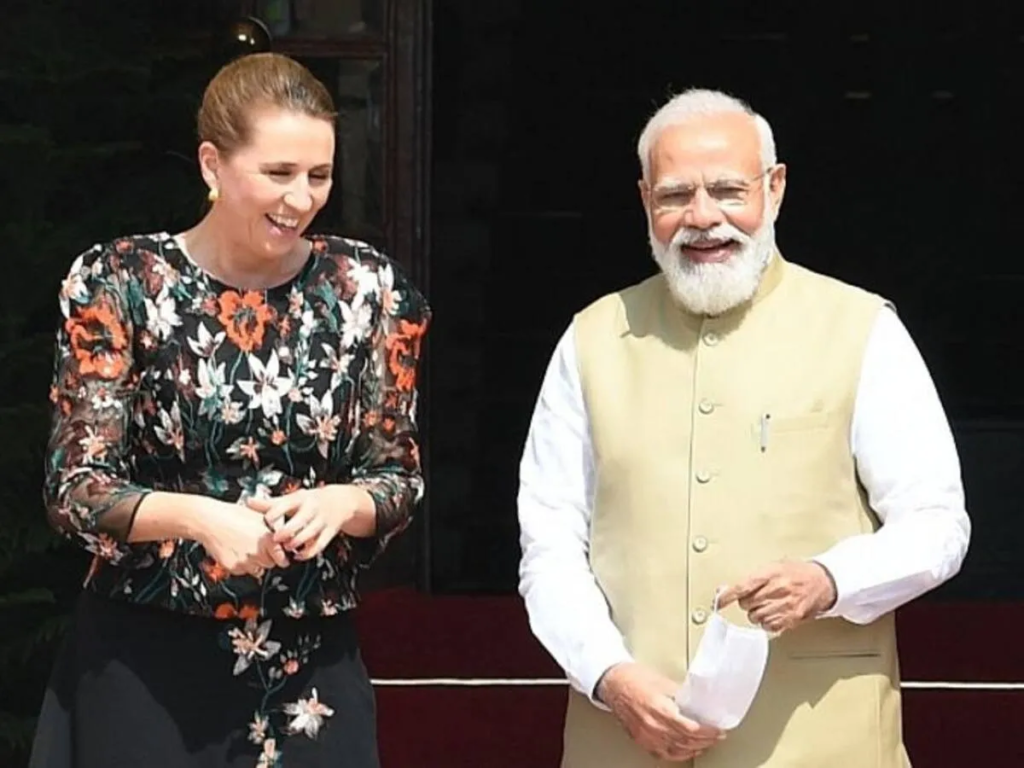
By Professor Habib Al-Badawi
The fabric of American democracy is woven with a rich tapestry of constitutional principles that have shaped the nation’s governance and the conduct of its leaders. Since its inception, the United States Constitution has served as the bedrock of the nation’s legal framework, providing a blueprint for the balance of powers, individual rights, and the sanctity of democratic processes.
The 14th Amendment stands as a cornerstone of this constitutional edifice, profoundly impacting the landscape of civil rights and governmental accountability. Ratified in the aftermath of the Civil War, this amendment sought to solidify the rights of newly freed slaves and establish a broad framework for equality under the law. Among its clauses, Section 3 holds relevance, addressing the disqualification of individuals who have engaged in an insurrection or rebellion against the United States from holding certain public offices.
Fast-forward to the tumultuous events of January 6, 2021, a day that marked an unprecedented moment in American history. The Capitol, the symbolic heart of American democracy, witnessed a violent incursion, disrupting the certification of the Electoral College results and sending shockwaves through the nation. In the wake of these events, legal inquiries emerged, probing the nexus between the actions of political figures and the constitutional boundaries outlined in Section 3 of the 14th Amendment.
Amidst these echoes of historical significance, the Colorado Supreme Court found itself at the epicentre of a legal debate that intersected law, politics, and constitutional interpretation. In a precedent-setting decision, the court deliberated on the eligibility of a former president for a state’s presidential primary ballot, invoking the rarely utilized insurrectionist ban enshrined in the 14th Amendment.
This unprecedented application of constitutional provisions invoked intense scrutiny, sparking debates among legal scholars, political commentators, and the public at large. The decision set the stage for a legal showdown as the case navigated its way toward the highest echelons of the U.S. judicial system, awaiting the scrutiny and deliberation of the U.S. Supreme Court.
Against the backdrop of this constitutional saga lies the fundamental tension between the sanctity of democratic norms, the accountability of leaders, and the interpretation of constitutional clauses forged in a different era. The impending adjudication by the U.S. Supreme Court carries profound implications, not merely for the fate of an individual’s candidacy but for the contours of constitutional interpretation and the enduring legacy of Section 3 of the 14th Amendment in shaping American democracy.
The Colorado Supreme Court ruled late Tuesday that former President Donald Trump is ineligible for election in the first-ever invocation of the U.S. Constitution’s insurrection clause for the presidency.

Trump was removed from the state’s presidential primary ballot in a 4-3 vote in which justices partially overturned a previous district court ruling on the matter. One of the issues under question was whether Section 3 of the 14th Amendment, which has an “insurrectionist ban,” disqualified Trump from being on the presidential primary ballot.
“We do not reach these conclusions lightly,” the state supreme court, whose justices were all appointed by Democratic governors, said in their filing. “We are mindful of the magnitude and weight of the questions now before us. We are likewise mindful of our solemn duty to apply the law without fear or favour and without being swayed by public reaction to the decisions that the law mandates we reach.”
Trump’s attorneys vowed to appeal the decision to the U.S. Supreme Court.
“The Colorado Supreme Court issued a completely flawed decision tonight, and we will swiftly file an appeal to the United States Supreme Court and a concurrent request for a stay of this deeply undemocratic decision,” Trump campaign spokesman Steven Cheung said in a statement that accused “the all-Democrat appointed Colorado Supreme Court” of being part of a scheme to “interfere in an election on behalf of Crooked Joe Biden.”
The Colorado Supreme Court said that they would stay their ruling until Jan. 4 in case the decision goes under review by a higher court. The state began printing names on presidential primary ballots on Jan. 5.
Here is what you need to know:
Why did the Colorado Supreme Court kick Trump off the ballot?
The Colorado Supreme Court’s decision to remove Trump from the state’s presidential primary ballot was based on the interpretation of Section 3 of the 14th Amendment, which contains an “insurrectionist ban.” This clause disqualifies individuals who have engaged in insurrection or rebellion against the United States from holding public office unless Congress votes to lift the disqualification.
The court considered whether Trump’s actions and statements leading up to and during the Capitol riot on January 6, 2021, constituted support for or incitement to an insurrection. This legal interpretation led to the 4-3 vote, with the majority concluding that Trump’s conduct fell within the scope of the insurrection clause, thereby disqualifying him from appearing on the presidential primary ballot in Colorado.
However, it is important to note that this decision is subject to further legal review and appeal. Trump’s legal team has indicated their intention to appeal the decision to the U.S. Supreme Court, and the Colorado Supreme Court has temporarily stayed their ruling pending any higher court review.
What is Section 3 of the 14th Amendment?
Section 3 of the 14th Amendment to the United States Constitution deals with the issue of individuals who have participated in an insurrection or rebellion against the U.S. government. It states:
“No person shall be a Senator or Representative in Congress, or elector of President and Vice President, or hold any office, civil or military, under the United States, or under any State, who, having previously taken an oath, as a member of Congress, or as an officer of the United States, or as a member of any State legislature, or as an executive or judicial officer of any State, to support the Constitution of the United States, shall have engaged in insurrection or rebellion against the same, or given aid or comfort to the enemies thereof. But Congress may, by a vote of two-thirds of each House, remove such disability.”
In essence, this section disqualifies individuals who have actively participated in or supported an insurrection or rebellion against the United States from holding certain offices or positions within the government. This disqualification can be lifted by a two-thirds vote in Congress.
How does Trump’s behaviour on Jan. 6 relate to the 14th Amendment?
The relevance of Trump’s behaviour on January 6, 2021, to the 14th Amendment, particularly Section 3, stems from the interpretation of whether his actions could be considered engaging in or supporting an insurrection against the United States.
During a rally that day, Trump addressed his supporters, repeating false claims about the integrity of the 2020 presidential election and urging them to march to the Capitol. Subsequently, a violent mob breached the Capitol building, leading to vandalism, injuries, and fatalities, disrupting the certification of the Electoral College results.
The key consideration for the application of the 14th Amendment, Section 3, revolves around whether Trump’s actions could be deemed incitement to insurrection or providing support to individuals engaged in insurrection against the United States. The legal argument would likely focus on whether his rhetoric and actions amounted to giving aid or comfort to those involved in the violent attack on the Capitol.
The Colorado Supreme Court’s decision to exclude Trump from the state’s presidential primary ballot was based on the interpretation that his conduct aligned with the parameters of the insurrection clause outlined in the 14th Amendment. They found that his statements and actions could be seen as contributing to the events that led to the insurrection at the Capitol, thus falling within the scope of disqualification outlined in Section 3.
Do legal experts agree with the ruling?
Legal opinions on this matter can vary widely among experts. Some legal scholars and experts might agree with the Colorado Supreme Court’s ruling, interpreting Trump’s actions on January 6, 2021, as potentially falling within the scope of the 14th Amendment’s Section 3.
However, it is crucial to note that legal interpretation is often subjective, and there can be significant differences of opinion. Some experts might disagree with the ruling, arguing that Trump’s actions, while controversial, may not meet the specific criteria outlined in Section 3 regarding engaging in or supporting an insurrection against the United States.
The application of constitutional provisions can be complex, and interpretations can depend on a range of factors, including legal precedents, factual analysis, and differing perspectives on the intent and context of the actions in question. As such, there might not be a unanimous consensus among legal experts regarding the Colorado Supreme Court’s decision to exclude Trump from the ballot based on the 14th Amendment’s Section 3.
Have other states considered this claim?
Other states have not officially considered or invoked the 14th Amendment’s Section 3 to disqualify a candidate from appearing on the ballot due to allegations related to January 6, 2021, events, or similar circumstances.
The situation regarding the application of Section 3 of the 14th Amendment regarding Trump’s actions on January 6, 2021, was a unique and legally contentious issue. The Colorado Supreme Court’s ruling was notable for its interpretation and application of this constitutional provision.
However, the interpretation and application of this clause in other states’ electoral processes may vary based on their legal systems, interpretations of state law, and specific circumstances. Political and legal considerations, as well as differences in judicial interpretation, can significantly impact whether other states might consider similar actions regarding a candidate’s eligibility based on the 14th Amendment’s Section 3.
What will the U.S. Supreme Court do?
Predicting the actions of the U.S. Supreme Court, especially in a case as politically charged and nuanced as this one, is highly speculative. The court might decide to hear the case or decline to do so. If they do take it up, they will evaluate the legal arguments presented and consider whether the Colorado Supreme Court’s decision aligns with the U.S. Constitution.
Their decision could have far-reaching implications, not just for this specific case but potentially for the interpretation and application of the 14th Amendment’s Section 3 in similar situations in the future. However, it is important to note that the Supreme Court does not always assume every case that is appealed to it, and when it does, the decision might not align with initial predictions or expectations.
The Court’s decision-making process involves thorough legal analysis, consideration of precedent, constitutional interpretation, and numerous factors beyond the immediate political or public reactions to a case. As such, it is challenging to predict with certainty what the U.S. Supreme Court will do in this instance.
Constitutional analysis is an essential aspect of legal proceedings and decision-making, particularly in cases involving interpretations of constitutional provisions. In the situation regarding the Colorado Supreme Court’s ruling on Trump’s eligibility for the presidential primary ballot based on the 14th Amendment’s Section 3, here is a summary of the constitutional elements at play:
- 14th Amendment, Section 3: This section stipulates those individuals engaged in insurrection or rebellion against the United States, or those who have given aid or comfort to its enemies, are disqualified from holding certain public offices unless Congress decides otherwise by a two-thirds vote.
- Interpretation of Section 3: The interpretation of this clause is critical. It involves determining whether an individual’s actions or statements meet the criteria for engaging in or supporting an insurrection against the United States. In Trump’s case, the question revolves around whether his conduct on January 6, 2021, qualifies as supporting an insurrection or rebellion, thus triggering the disqualification outlined in Section 3.
- Judicial Review and Appeal: The Colorado Supreme Court’s decision is subject to further legal Trump’s legal team intends to appeal the ruling to the U.S. Supreme Court. The highest court in the land will assess the legal arguments presented, review relevant precedents, and determine whether the Colorado court’s decision aligns with constitutional provisions and legal precedent.
- Legal Arguments: Legal experts may present arguments both for and against the application of Section 3 in this context. Those in favour might assert that Trump’s rhetoric and actions potentially incited the events at the Capitol, aligning with the insurrectionist ban. Conversely, opposing views might argue that, while controversial, his actions might not explicitly meet the criteria outlined in Section 3.
- Potential Implications: The U.S. Supreme Court’s decision could have broad implications for the interpretation and application of Section 3 of the 14th Amendment in future cases involving alleged insurrection or rebellion. It may set precedents and guide the boundaries of this constitutional provision.
In essence, the constitutional closure of this matter hinges on the application and interpretation of Section 3 of the 14th Amendment, requiring a thorough legal analysis by the judiciary to determine its applicability to the actions and statements of former President Trump on January 6, 2021.
In matters of constitutional interpretation and legal proceedings, careful consideration of facts, precedent, and the fundamental principle of justice is essential. The situation regarding the Colorado Supreme Court’s ruling on Trump’s eligibility for the presidential primary ballot based on the 14th Amendment’s Section 3 is complex and multifaceted.

This case underscores the importance of a balanced approach to the application of constitutional provisions, especially in circumstances where legal interpretations intersect with contentious political events. The U.S. Supreme Court’s upcoming review of the Colorado decision will play a pivotal role in shaping the understanding and application of Section 3 of the 14th Amendment in cases involving alleged insurrection or rebellion.
As the legal process unfolds, it is crucial to uphold the principles of impartiality, adherence to the law, and the integrity of constitutional provisions. The outcome of this case will not only have immediate implications for the 2024 presidential election but may also set significant precedents for future interpretations of constitutional clauses concerning the eligibility of individuals for public office.



